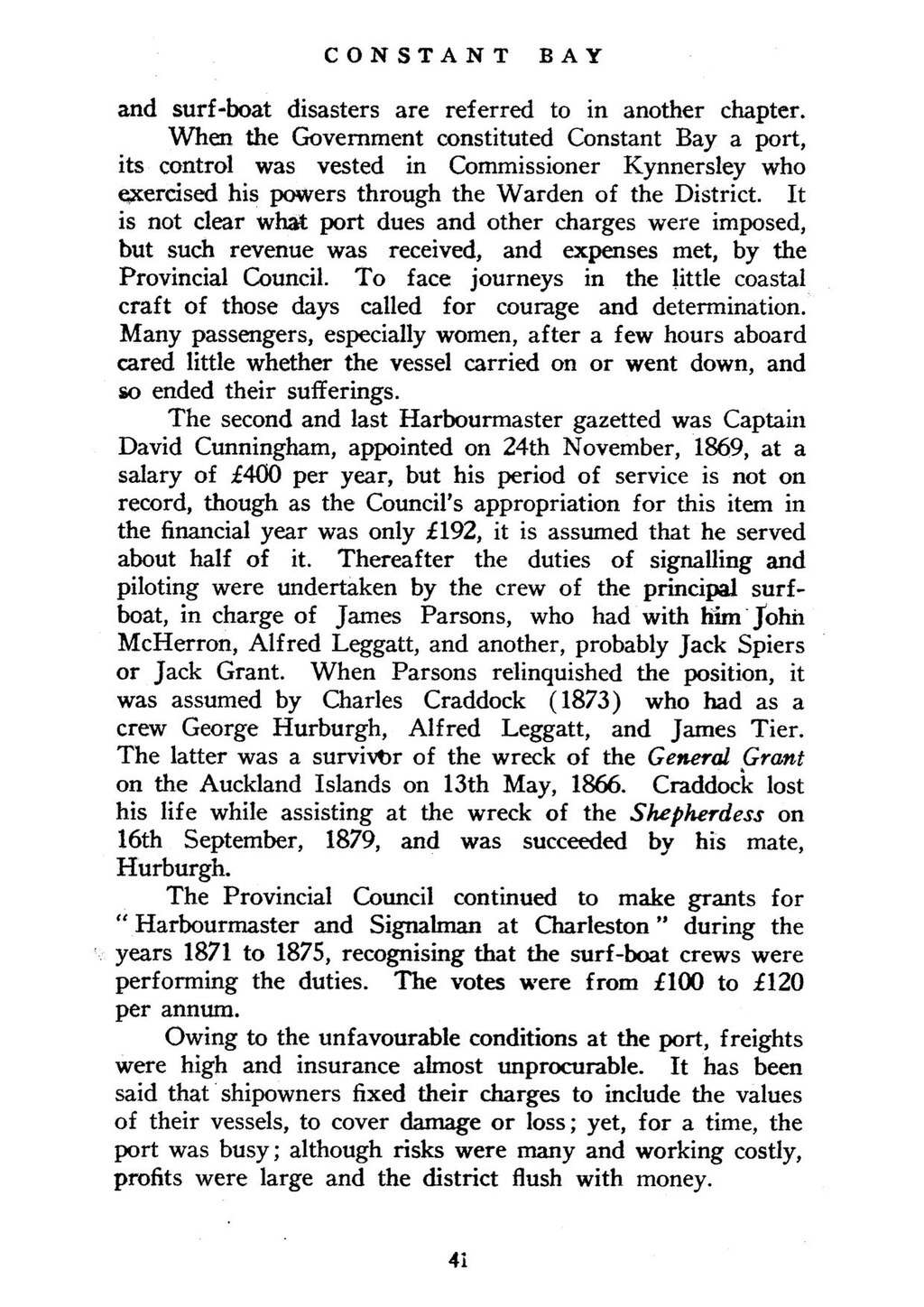CONSTANT BAY
and surf-boat disasters are referred to in another chapter.
When the Government constituted Constant Bay a port, its control was vested in Commissioner Kynnersley who exercised his powers through the Warden of the District. It is not clear what port dues and other charges were imposed, but such revenue was received, and expenses met, by the Provincial Council. To face journeys in the little coastal craft of those days called for courage and determination. Many passengers, especially women, after a few hours aboard cared little whether the vessel carried on or went down, and so ended their sufferings.
The second and last Harbourmaster gazetted was Captain David Cunningham, appointed on 24th November, 1869, at a salary of £400 per year, but his period of service is not on record, though as the Council’s appropriation for this item in the financial year was only £192, it is assumed that he served about half of it. Thereafter the duties of signalling and piloting were undertaken by the crew of the principal surf-boat, in charge of James Parsons, who had with him John McHerron, Alfred Leggatt, and another, probably Jack Spiers or Jack Grant. When Parsons relinquished the position, it was assumed by Charles Craddock (1873) who had as a crew George Hurburgh, Alfred Leggatt, and James Tier. The latter was a survivor of the wreck of the General Grant on the Auckland Islands on 13th May, 1866. Craddock lost his life while assisting at the wreck of the Shepherdess on 16th September, 1879, and was succeeded by his mate, Hurburgh.
The Provincial Council continued to make grants for “Harbourmaster and Signalman at Charleston” during the years 1871 to 1875, recognising that the surf-boat crews were performing the duties. The votes were from £100 to £120 per annum.
Owing to the unfavourable conditions at the port, freights were high and insurance almost unprocurable. It has been said that shipowners fixed their charges to include the values of their vessels, to cover damage or loss; yet, for a time, the port was busy; although risks were many and working costly, profits were large and the district flush with money.
41
